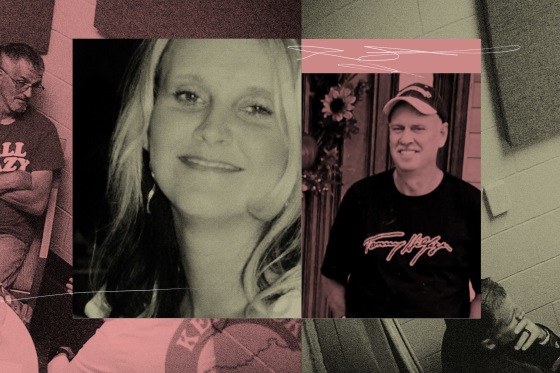It was almost the perfect crime.
But in the end, a pair of mundane events on Kentucky’s Bluegrass Parkway — a flat tire and a phone call — played an outsize role in solving the disappearance and presumed death of Crystal Rogers more than a decade ago.
That, at least, is how the prosecutor who tried three men convicted this year in connection with Rogers’ death views the resolution of a case that was based on a mountain of circumstantial evidence. Authorities never found Rogers’ body. Nor did they identify a crime scene or a murder weapon.
“If they had not gotten a flat tire, we probably wouldn’t have solved this case,” said Shane Young, the commonwealth’s attorney for the state’s 9th Judicial Circuit. “That phone call was the one hiccup in the plan because that phone call was not supposed to be made.”
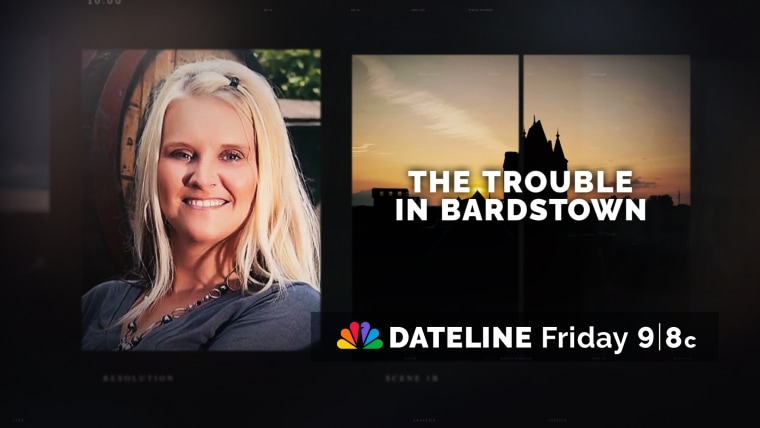
In an exclusive interview with “Dateline,” the veteran prosecutor reflected on the yearslong effort to bring justice to Rogers’ family and to other unsolved homicide victims in Bardstown, the scenic small town in the heart of Kentucky’s bourbon region where Rogers lived. Among the other victims is Rogers’ father, Tommy Ballard, who was gunned down roughly a year and a half after his daughter vanished on July 3, 2015.
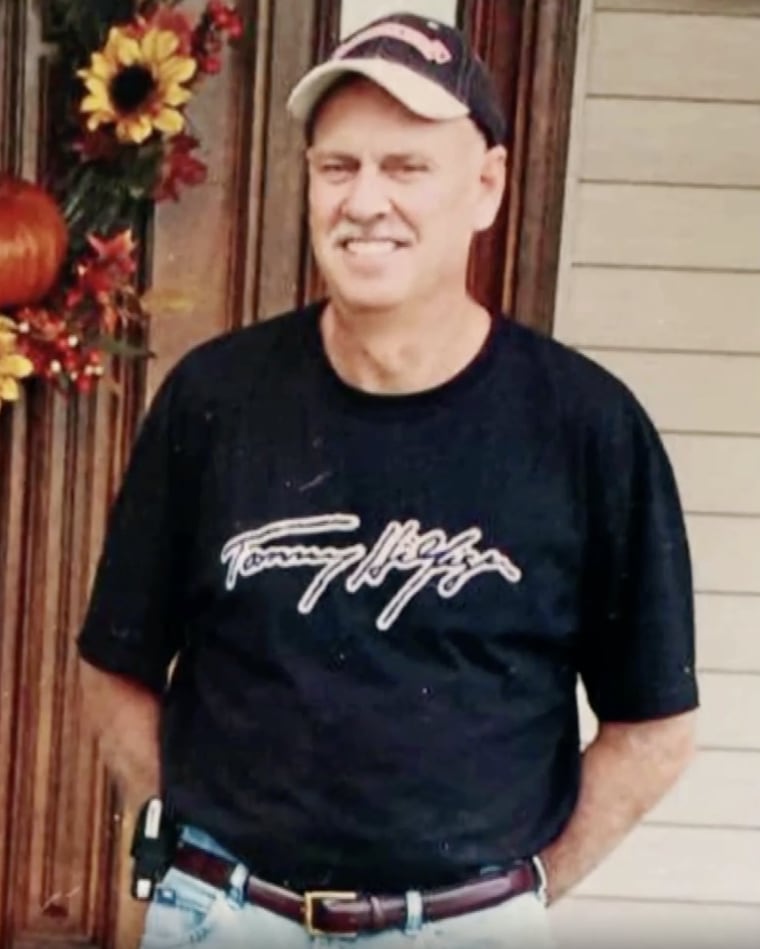
At the time, Ballard, 54, was leading an effort to investigate his daughter’s disappearance.
Rogers’ boyfriend, Brooks Houck, 44, was convicted of murder in Rogers’ killing and sentenced to life in prison in September. His attorneys are appealing the verdict.
Two men whom prosecutors identified as accomplices, Steve Lawson and his son, Joey Lawson, were convicted of conspiracy and tampering with physical evidence. Steve Lawson, 55, was sentenced to 17 years in prison. Joey Lawson, 34, was sentenced to 25 years to life. They’re also appealing their convictions.
In court, attorneys for the men said they were victims of police coercion — one of the lawyers described the interrogation tactics to “Dateline” as “the Bardstown inquisition” — and said there was no physical evidence linking them to the murder.
A relationship on the rocks?
Young was tasked with taking over the case as a special prosecutor in 2022. At trial, Young argued the couple’s relationship was deteriorating. The killing, he said, was motivated by Houck’s fear of losing custody of the couple’s 2-year-old son. Rogers was likely killed at the Houck family farm, prosecutors have said.
That theory was partly backed up by a cousin of Rogers’ who testified that when she saw Rogers on July 3, Rogers said she and Houck were going on a surprise date that night.
In interviews with police, Houck said he’d last seen Rogers that evening, after they’d gone to the farm for several hours with their toddler and walked around in the fields. Back at home, he said he fell asleep before Rogers did, according to a video of the interview.
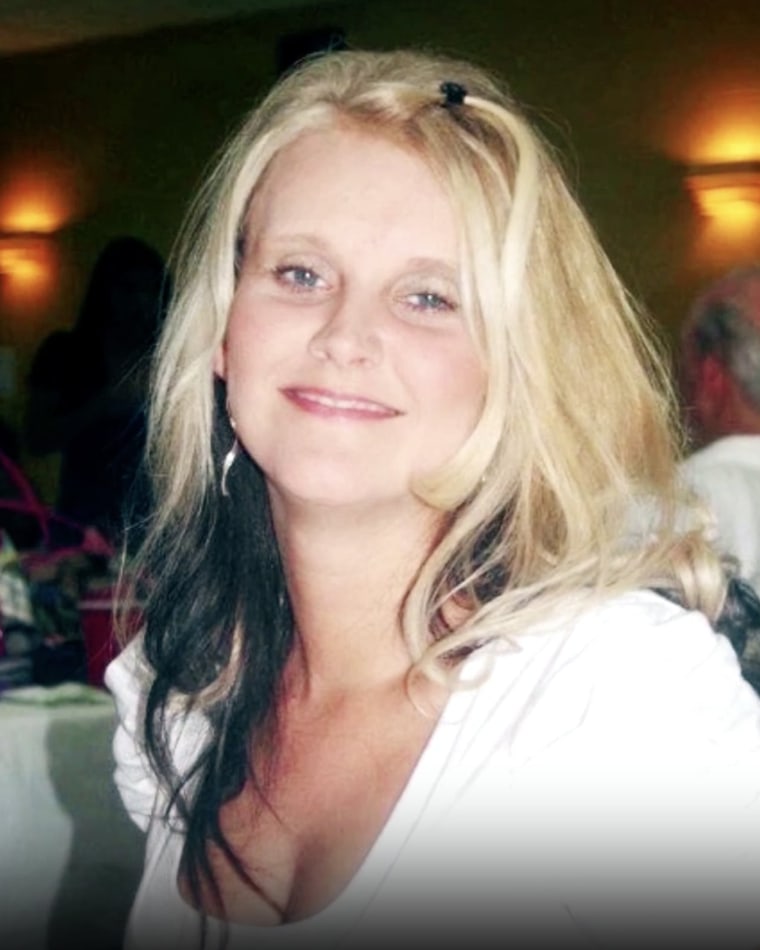
The next morning, Houck said that when he awoke, Rogers was gone — something he said she’d done before when she needed space, according to the video.
Jon Snow, the former Nelson County Sheriff's detective who questioned Houck, pressed him for details during a follow-up interview. It was raining on July 3, Snow pointed out, but Houck said he’d spent hours outside with their toddler.
“Four and a half hours is a long time to be outside in the rain, in the mud, with a 2 1/2 year old,” Snow said. “Does that make sense?”
“I understand what you’re saying,” Houck responded.
Problems on the parkway
According to prosecutors, the Lawsons were responsible for getting rid of Rogers’ car — a maroon Chevrolet Impala that was found, with a flat tire, on July 5 on the side of the Bluegrass Parkway.
“I think the plan was to make it look like she left,” Young told “Dateline.” “Whether they were gonna drive the car into a lake or a river or whatever, I don’t think the car was ever supposed to be found again.”

But then, according to the prosecution, Joey Lawson got a flat tire while driving the Impala. So he dialed his father, who then called Houck, Young said. (Joey Lawson has denied driving the car or playing a role in Rogers’ disappearance.)
The call was made around midnight and lasted just 13 seconds, according to Snow. In the follow-up interview with the detective, Houck said that he didn’t recall what the conversation was about, but that it had been made by Steve Lawson, who worked for him.
So Houck dialed Steve Lawson on the spot, a video of the interview shows.
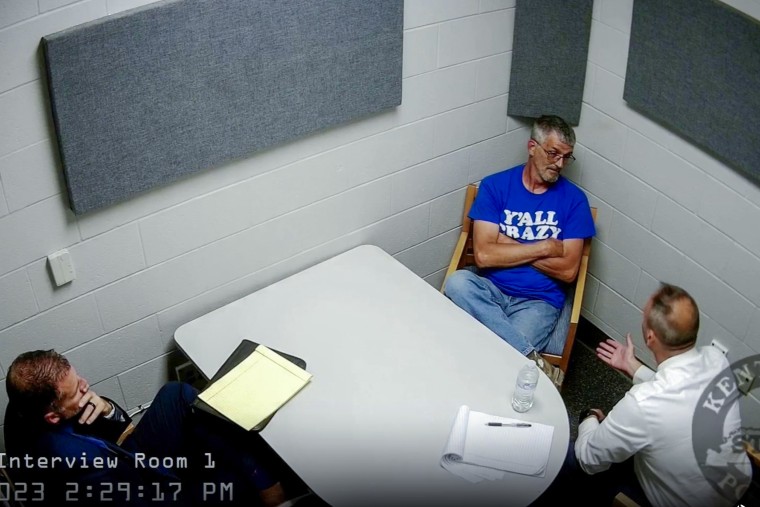
“Can you remember what you asked me or what you were after?” Houck said.
“Sure, I can,” Steve Lawson responded. “I called and asked you for them numbers for the house.”
Steve Lawson initially denied having been on the parkway, though he later admitted it to a grand jury. Under questioning from investigators, he said that the phone call from his son was actually a request to pick him up on the parkway, a video of the interview shows.
An FBI analysis of Steve Lawson’s phone confirmed that he’d been on the parkway, near the spot where Rogers’ Impala was found on the night of her disappearance. At trial, Joey Lawson’s attorneys disputed the analysis and said the phone actually showed Steve Lawson not on the parkway, but on a road parallel to it.
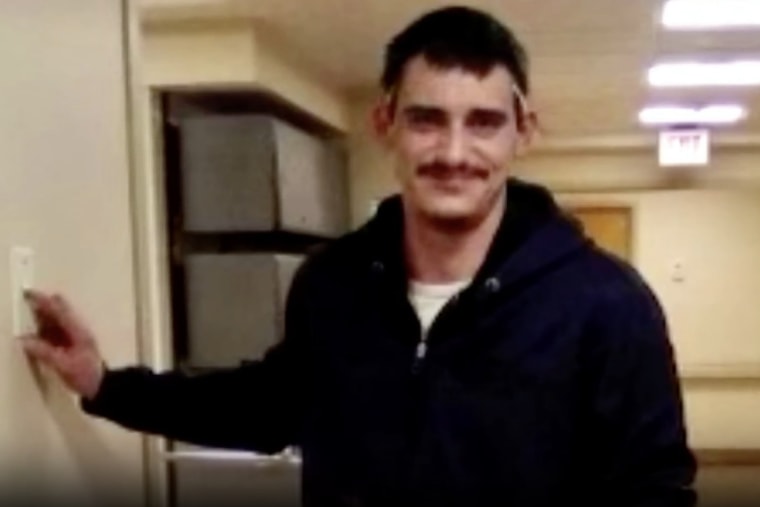
The same FBI analysis showed that Joey Lawson had repeatedly called his father before Steve Lawson finally answered and made the 13-second call to Houck, according to Steve Keary, an FBI agent who investigated the case.
Steve Lawson told authorities that when he arrived at the parkway, he found Rogers’ Impala, got in and scooted the seat forward, a video of the interview shows. His son was taller than Rogers, he said, and Steve Lawson said he was worried his son had gotten caught up in something bad. Moving the seat, he told investigators, was his way of covering that up.
Steve Lawson also told authorities that before Rogers’ disappearance, Houck had described the couple’s relationship as troubled and said he wanted her “gone.”
“To me, ‘gone’ means gone,” a video of the interview shows him saying.
Making the case in court
Even though investigators had only gathered circumstantial evidence, Young told “Dateline” that he believed they’d gathered enough to prove their case.

In Houck’s trial, the jury returned a guilty verdict in only a few hours.
It’s unclear if two people identified by prosecutors at trial as unindicted co-conspirators will face charges, he said.
One of those alleged co-conspirators is Houck’s brother, former Bardstown police officer Nick Houck. The department's former police, Chief Rick McCubbin, told “Dateline” that he fired Nick Houck because McCubbin believed he hadn’t fully cooperated with the investigation into Rogers’ disappearance.
Nick Houck has denied playing a role in the disappearance and has never been charged with a crime. His attorney did not respond to a detailed list of questions from “Dateline.”
Prosecutors say they have identified a possible link between Nick Houck and the killing of Rogers’ father, Tommy Ballard, who was fatally shot while on a hunting trip with Rogers’ 11-year-old son on Nov. 19, 2016. In a court hearing and in his interview with “Dateline,” Young said that Nick Houck sold a gun to an undercover officer that investigators believe has the same or a similar caliber as the weapon used to kill Ballard.
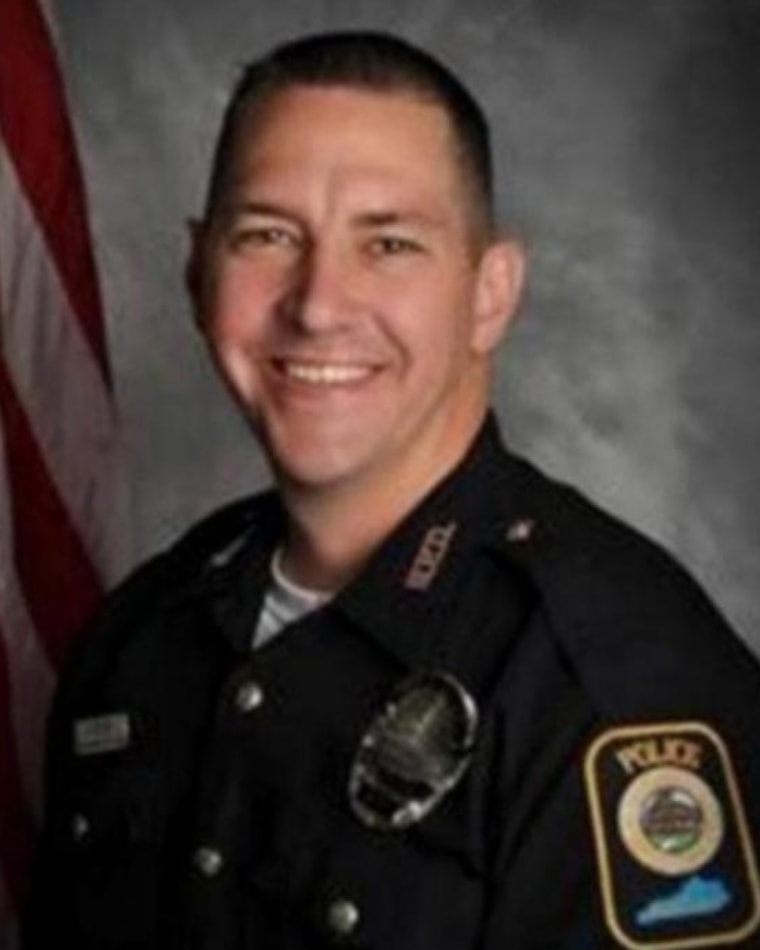
He sold the firearm using the name Nick Ballard, Young told “Dateline.” Houck has not been charged with a crime in Tommy Ballard’s death.
Young is also investigating the killing of Bardstown police officer Jason Ellis, who was fatally shot on May 25, 2013, while clearing tree branches from an exit ramp on the Bluegrass Parkway — branches that investigators believe were placed intentionally. McCubbin said there was evidence the shooter had been lying in wait at the top of a nearby rock wall.
Asked if he expects charges in either case, Young said: “Don’t know. We’re working on them.”
